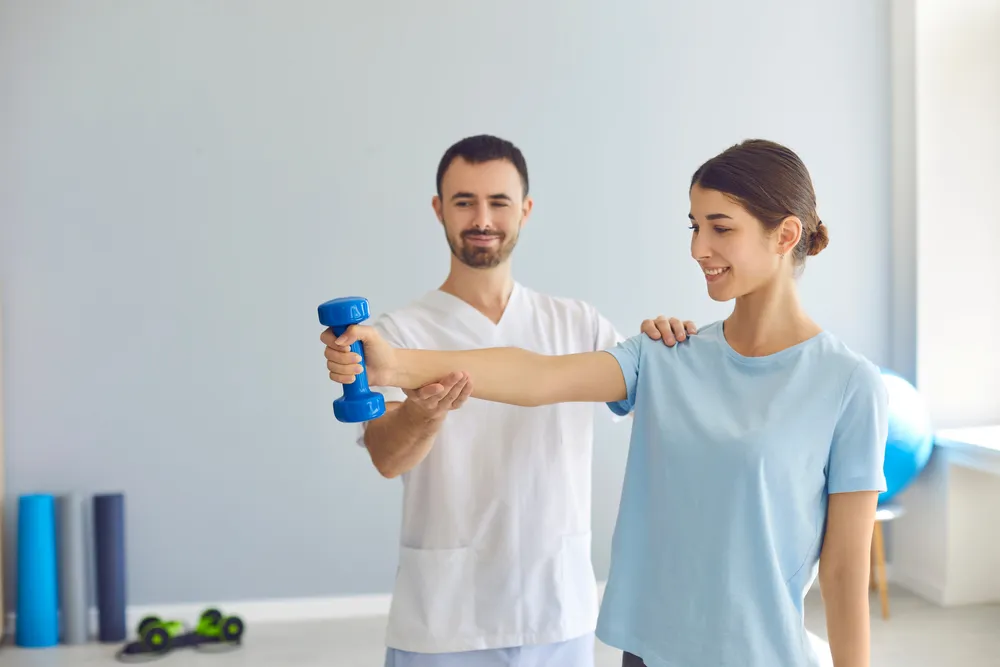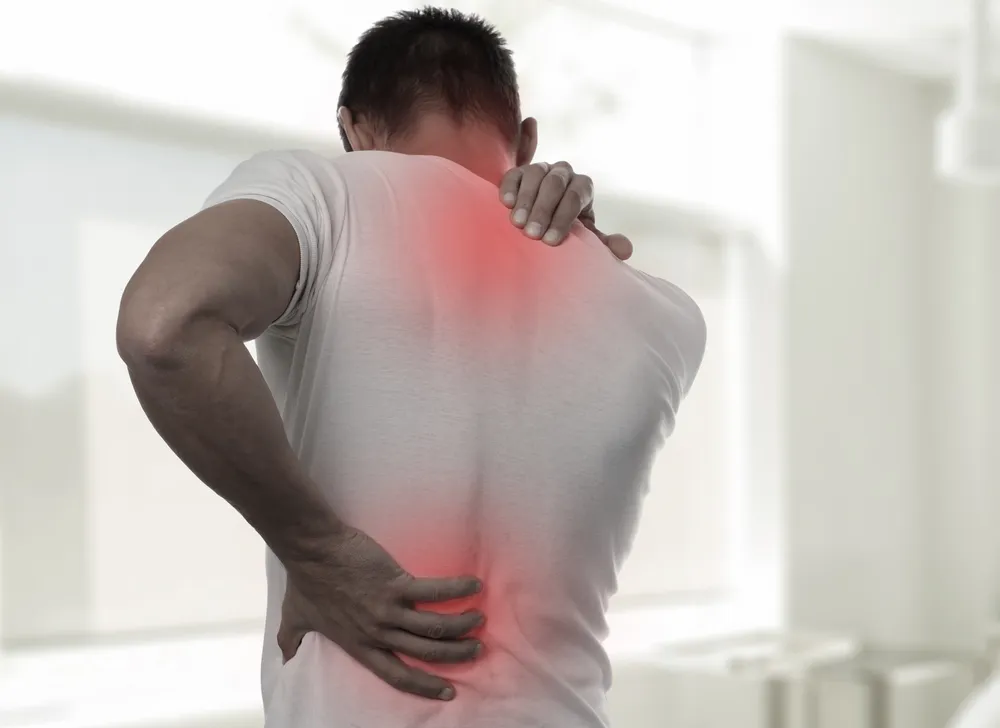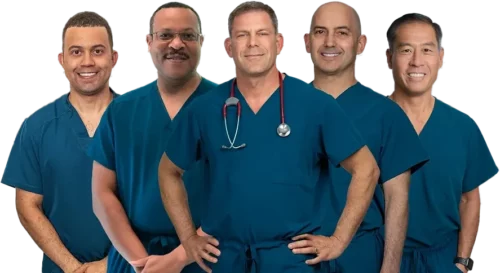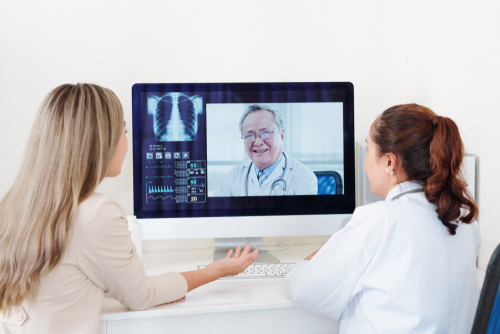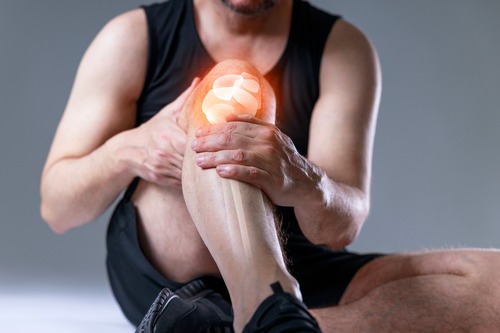Workplace injuries are unfortunately quite common, and some can be debilitating. Many workplace injuries stem from hazardous work environments, exposure to harmful substances, and strenuous physical demands.
Whether it’s a fall at work or developing tendonitis from repetitive physical movements, a workplace injury can cause significant pain. Neglecting such injuries can potentially lead to more severe conditions, so it’s crucial to have a doctor assess and treat the injury promptly.
Georgia Spine & Orthopaedics is dedicated to helping you return to your normal life and work as swiftly and painlessly as possible. Our team specializes in a wide range of conditions and treatments, offering personalized solutions tailored to your needs.
From urgent care options to advanced pain management surgical services, we can be your partner on your journey to treat and recover from workplace injuries.
What To Do If You’ve Sustained a Work Injury
When you’re injured on the job, there are several steps you should take to safeguard your health and ensure you receive full workers’ compensation benefits for the injury:
- Report the injury promptly: Notify your manager or supervisor as soon as possible after the injury. Ideally, document the incident and injuries in writing.
- Seek medical attention: Your health is a priority. Even seemingly minor injuries should be examined by a qualified doctor. For severe injuries, visit an emergency room or local urgent care.
- Document everything: Keep records of all related to your injury, including medical reports, bills, and correspondence with your employer and their insurance company.
- Only return to work when cleared by a doctor: To minimize the risk of prolonging recovery and worsening the injury, return to work only after you’ve been cleared by a doctor. Consult with our staff for guidance on determining readiness to return to work.
Causes of Workplace Injuries
Some of the most common types of workplace injuries encountered at Georgia Spine & Orthopaedics include:
- Overexertion injuries: Caused by strenuous activities like lifting, pushing, pulling, carrying, and throwing objects at work.
- Slipping/Tripping: Injuries resulting from falls on wet or slippery surfaces or tripping over obstacles.
- Falling from Heights: Injuries from falls off elevated areas such as roofs, ladders, or stairways.
- Reaction Injuries: Injuries from slipping or tripping without falling, leading to muscle strains, bodily trauma, and various medical issues.
- Falling Object Injuries: Injuries caused by objects falling from shelves or being dropped by others, often resulting in severe head injuries.
- Walking into Injuries: Accidental collisions with stationary objects like walls, doors, cabinets, tables, and chairs.
- Vehicle Accidents: Injuries sustained by employees driving for business purposes, often involving auto collisions.
- Machinery Accidents: Injuries occurring in factory settings involving heavy machinery and equipment, where heavy machines mutilate or crush an employee.
- Repetitive Motion Injuries: Long-term harm from repetitive actions like typing and computer use, leading to conditions such as carpal tunnel syndrome, vision problems, muscle strains, and back pain.
Precautions to Prevent Work-Related Orthopedic Injuries
There are certain measures that workers can take to help prevent work-related accidents and injuries:
- Adopt proper form and technique: Learn and apply correct form and technique for various job tasks to significantly reduce the risk of strain and injury. Dress appropriately for the job to avoid loose clothing getting caught in machines or chemicals.
- Incorporate regular breaks: Take several rest breaks during the workday to rest and stretch, reducing fatigue and overuse injuries. Even in office settings, get up and move regularly, and perform stretches.
- Use the right equipment: Employ the correct tools and equipment for job tasks to lower the risk of accidents and injuries. Participate in work training to learn how to operate equipment safely and perform job duties with minimal risks.
- Promptly report injuries: Immediately report any injuries to your supervisor to ensure timely treatment and implement workplace safety measures against future accidents.
While accidents cannot always be completely avoided, taking precautionary steps can help protect you and others in the workplace.
Common Workplace Injuries
At Georgia Spine & Orthopaedics, we commonly encounter the following workplace injuries:
- Musculoskeletal injuries: Affecting muscles, ligaments, tendons, joints, and bones, these injuries can result from repetitive motion, overuse, or trauma.
- Cervical Spine Injuries: Injuries to the neck’s cervical spine, critical yet vulnerable, often caused by sports and workplace accidents.
- Dislocations: Occur when a bone is forced out of its normal position, often caused by car accidents, falls, and traumatic events.
- Fractures: Broken bones often caused by traumatic bodily injury from accidents such as slips, falls, and direct blows to the body.
- Thoracic Spine Injuries: Affecting the mid-back, fractures here can result in paralysis or mobility issues, often stemming from impactful accidents.
- Lumbar Spine Injuries: Injuries in the lower back that can impair hip and leg function, sometimes requiring supportive devices.
- Herniated Discs: When spinal discs herniate, they can compress nerves, causing pain and numbness.
- Spinal Cord Injuries: Direct injuries to the spinal cord can lead to paralysis or loss of function, requiring immediate stabilization.
Treatment for Work Injuries
The treatment approach for workplace injuries at Georgia Spine & Orthopaedics varies based on the nature and severity of the injury. While more severe injuries may require intensive and potentially invasive treatments, we always start with a non-invasive approach:
- Non-invasive treatments: We begin with techniques such as medications, exercise, therapy, and rehabilitation to address minor injuries and promote healing.
- RICE method: For minor injuries, treatment often involves the RICE method: rest, ice, compression, and elevation.
- Interventions: More severe injuries may necessitate interventions such as physical therapy, medication, or surgical procedures.
Pain Management
At Georgia Spine & Orthopaedics, we offer various treatments to alleviate joint and muscle discomfort:
- Targeted exercises
- Tailored medication plans
- Physical Therapy
- Bone Fracture Treatments
- Bracing & Casting
- Orthopedic Surgery
- Non-surgical spine treatments (e.g., epidural steroid injections, radiofrequency ablation)
Our team of compassionate and skilled doctors personalizes treatment plans to suit each patient’s unique situation and needs.
Let’s Manage Your Workplace Injury Treatment
Georgia Spine & Orthopaedics understands the importance of timely care. When you schedule an appointment with our clinic, we’ll diagnose your injury, personalize your treatment, and pair you with the right doctor.
Call us today at 678-929-4494 to schedule an appointment and start your journey toward full recovery from your workplace injury.
